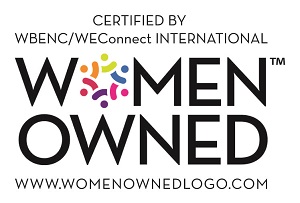The “New Normal” and ADA Compliance
Published on
The “new normal” is a phrase uttered across America and, frankly, around the world. But, is this “new normal” inclusive of everyone; meaning are you including people with disabilities in the COVID-19 world?
From scheduled press conferences that fail to provide a person to sign for the deaf to inaccessible e-commerce, this “new normal” has a lot of compliance remediation work needed to meet the Americans with Disabilities Act (ADA) and other federal requirements.
Pointing out the flaws in the “new normal” provides an opportunity for corrections, compliance, and growth for businesses.
More than “Just the Essentials”
As many businesses shift to e-commerce, digital accessibility is not only important for legal reasons but also profit margins. The Baby-Boomer generation represents the majority of the wealth in America. Since the year 2000, people forty years and older have seen an increase in vision issues, about 20% for most major eye diseases, and an 89% rise in diabetic retinopathy.
Take a moment to think about what your organization is doing to be inclusive for all people.
At the start of this pandemic, businesses were operating in panic mode with just the essentials. However, many companies overlooked the vital components of the ADA laws for equal access to goods, services, and information. The guidelines for effective communication fell by the wayside.
Do You Think Your Website is Compliant?
Many organizations believe their website complies with ADA standards. They are probably correct for the most part, as long as no adjustments or additions are made to the pages.
Once changes occur on webpages, with additions like PDFs, you often compromise the compliance of the page. While the page is accessible to a visual reader, a person relying on assistive technology for audio or braille translation may no longer have full access to the content of the page. The assistive technology that people rely on to read the page will read inaccessible PDFs as a jumbled mess. So, the look of a website can be deceiving.

The Choice that Businesses Make and Universal Design
Providing independence and allowing discrimination are both powerful actions. By making e-commerce accessible to all Americans, you are giving people independence. Overlooking accessibility in digital marketing, communication, and commerce is, by default, discrimination. While this can seem overwhelming when you start with everyone in mind, accessibility isn’t daunting, and it’s a benefit to your business. This concept is known as Universal Design.
Universal Design goes beyond basic accessibility and basic use when designing products, applications, and services.
Apple’s product Siri, Amazon’s product Alexia, and Google Home are one example of Universal Design. The voice-activated software permits hand-free and sight-free access. So, a person with limited use of limbs or sight can access the product with greater ease. However, many Americans use these applications multiple times a day.
Curb cuts found at crosswalks, intersections, and shopping centers is another example. This design of these dips helps a person with a visual impairment locate where they need to be to safely cross or access an entrance. The curb cuts also help people in wheelchairs to independently get from point A to point B. But, there is an added convenience for all people when wheeling something to access curb cuts. Think about this the next time you are pushing a shopping cart to your car.
A Universal Design approach will include people with diverse abilities and needs when testing products. This way feedback and ease of use can be tested and adjustments made to benefit all users.
Lasting Changes Due to COVID-19
The changes businesses are making due to COVID-19 are taking both time and money to implement. Many adjustments made during this time will likely remain because of either convenience, cost factors, or both. Effective communication and accessibility for all Americans are vital to the success and stability of your business. Braille Works is here to help.
While ADA compliance provides independence, it also opens the door for your goods and services to millions of Americans.
Categorized in: Accessibility, Informational, Uncategorized
This post was written by



Comments are closed here.